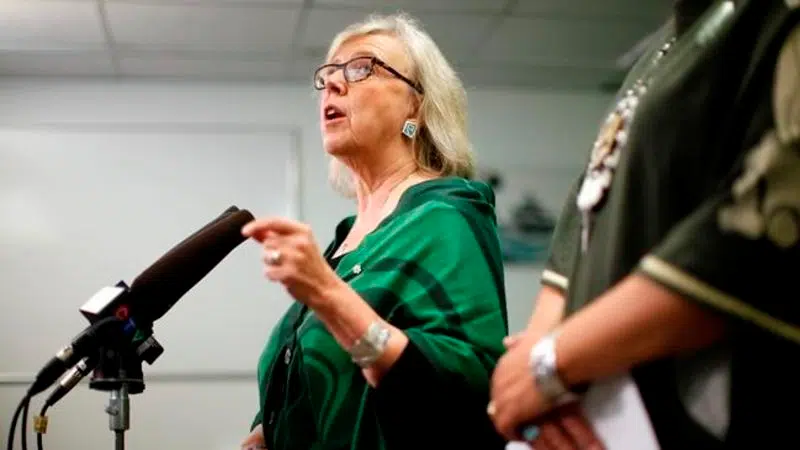
Green Leader Elizabeth May predicts minority government, warns against majority
VICTORIA — Green Leader Elizabeth May says it appears Canadians are about to elect a minority government, which could make the environment the biggest winner.
Minority Parliaments force parties to work together and the Greens can play leading roles in implementing environmental policies that fight climate change, she said Wednesday.
“The point is right now we’re looking at a minority Parliament,” May said. “What you want is members of Parliament who know how to co-operate across party lines and deliver good results. A minority Parliament gives us the opportunity to actually deliver on what is needed.”
The Greens held two seats when the election was called and are hoping for a breakthrough on Oct. 21 that has eluded them in previous votes.
